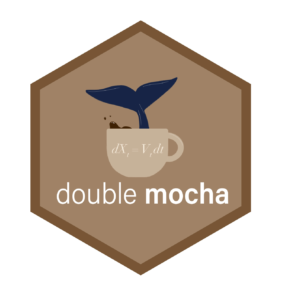 MOCHA and Double MOCHA
MOCHA and Double MOCHA
2019 has seen the start-up of a new project, Double MOCHA. This follows on from the MOCHA project which ran from 2012 through till 2016. The start up of the Double MOCHA project was responsive to the need for new analytical methodologies to cope with the evolving complexities of behavioural response study (BRS) field efforts. Details of the two projects are provided below.
MOCHA (2012-2016)
MOCHA was a 3.5-year (2012-2015) research project to develop and implement innovative methods for the analysis of cetacean behavioural response studies (BRSs). During the project we collaborated to co-author over 18 peer-reviewed papers, six meeting reports (see Project outputs page) and numerous internal working documents detailing new methods and applications (available on the internal project web site). We extended the project by one year, until September 2016, to finish a few analyses and complete writing up our findings.
The project PIs, Catriona Harris and Len Thomas are based at the Centre for Research into Ecological and Environmental Modelling (CREEM) at the University of St Andrews, U.K. During the main part of the project, we coordinated a large working group of leading BRS scientists, supported by two full-time postdoctoral research fellows (Stacy DeRuiter and Dina Sadykova) undertaking the statistical development and consultancy work. The project was funded by the U.S. Office of Naval Research.
Double MOCHA (2019-2021)
Double MOCHA has a similar overall objective to the MOCHA project – to develop new quantitative models and analytical methods for inferring behavioural response of marine mammals to Navy sonar. However, BRSs have evolved and recent efforts have included the collection of data across multiple spatial and temporal scales from a variety of different platforms, which presents new analytical challenges that were not addressed explicitly by the MOCHA project. We will post outputs from this project on our Project outputs page as soon as they become available.
Double MOCHA is a collaboration between researchers at the University of St Andrews and Duke University. The University of St Andrews PIs, Len Thomas, Catriona Harris and Richard Glennie are based at the Centre for Research into Ecological and Environmental Modelling (CREEM) while the Duke University PIs, Rob Schick and Alan Gelfand, are based at the Nicholas School of the Environment and the Department of Statistical Science.
The project is supported by two full time postdoctoral research fellows (Théo Michelot and Joshua Hewitt), with others working on shorter duration tasks (Saana Isojunno and Phil Bouchet). We are also supported in an advisory capacity by Nicola Quick, a research scientist at the Duke Unversity Marine Lab.
